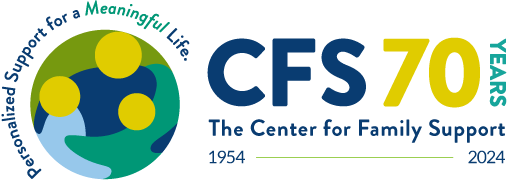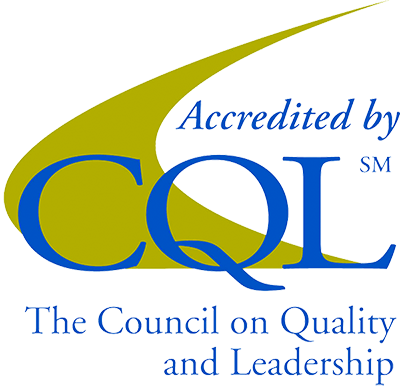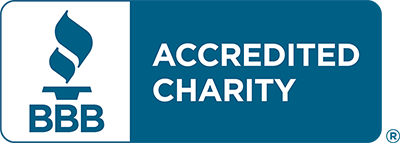
“I am inspired by Dr. Dave Pitonyak who encourages us to ask: ’Who audits loneliness? Who champions relationships?’”

A Conversation with Danielle Powers-Diaz, Chair, CFS’ Natural Supports Committee
Since first forming in 2014, CFS’ Natural Supports Committee has developed and plays an integral role at the organization. But what is “Natural Support”? Chair of the Natural Supports Committee, Danielle Powers-Diaz, explains!
What are Natural Supports?
A foundation to all other services and resources, Natural Supports are routine and familiar supports that help a person be a valued member of their community and live successfully on a day-to-day basis at home, work, school, or other community locations. A Natural Support creates a comfort zone that may not occur within the service system. That is because Natural Supports exist in the community for everyone, not only those who do or do not have a disability.
These social networks are integral to everyone’s happiness and success in life. Family and friend involvement are essential to the health and well-being of the individuals we serve and opportunities for these connections are promoted across all programs at CFS.
We encourage familial connections, particularly supporting parental/child relationships. For example, we have assisted individuals to obtain Individual Supports and Services (ISS) apartment funding, taken mothers to parenting classes, court dates, helped facilitate foster care visits, and supported sleepovers during visitation.
What is the role of the CFS Natural Supports Committee?
Our goal at CFS, across all programs, is to reinforce meaningful and freely chosen relationships for the individuals we provide services to. The Natural Supports Committee at CFS is a system of checks and balances, where we come together to evaluate where we are and how we can improve at connecting the individuals we support with their natural support networks. The committee is active in the development of our agency’s policy on natural supports, training materials, and methods of resource exposure. Ideas are brought to the next level; our process is ongoing and adaptive to feedback. I think that having a committee on Natural Supports shows our agency’s dedication to self-reflect and strive for improvement.

What do you, Danielle, value most about Natural Supports?
Having a committee on the integration of Natural Supports means that we are asking ourselves the question, “how do services for people with disabilities promote relationships? Who audits loneliness, who champions relationships?” This is something Dr. David Pitonyak encourages us to consider. (Pitonyak, D., 2003, Loneliness Is the Only Real Disability Implications and Recommendations for Policymakers) Dr. Pitonyak’s writing has been a great inspiration to the committee and influential in our staff training.
I think the biggest thing to value is that Natural Supports are not always a given in people’s lives. It is important for us as service providers to understand the importance of social capital, assess the barriers to it, and be proactive with this type of support. We must “audit [for] loneliness,” evaluate the gaps, and provide these opportunities for happiness.
What do Natural Supports look like in practice?
Natural Supports look different depending on the person’s needs. For example, an individual in residential reconnected with his family and will be going back to visit his hometown in South Carolina this year. Another resident will be moving into a new home in Florida with her siblings. A community services recipient, who recently lost her mother, had a small group of friends come together from Self-Advocacy. They continue to meet for monthly luncheons in commemoration of her mother, and they wear matching bracelets in her honor. Opportunities to meet and develop or maintain friendships between individuals in our programs are reinforced by our dedicated staff and management teams.









